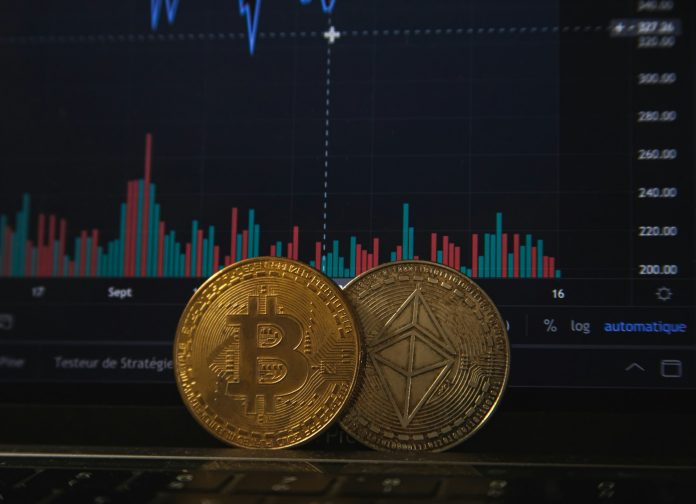Liquidity is the lifeblood of the crypto market, keeping market activity and making it attractive for new traders. It is the ease with which assets can be bought or sold at stable, fair prices, a critical factor that ensures the ecosystem’s vitality and appeal to investors. Without sufficient liquidity, markets can become stagnant, deterring participation and potentially leading to volatile price swings. This is where the concept of market-making becomes indispensable, offering a solution to maintain continuous flow and accessibility in the crypto market.
What is Market Making in Crypto?
Market making in crypto refers to providing constant buy and sell orders on a crypto exchange to ensure liquidity. This process is conducted by entities known as market makers operating on a market making platform. These market participants connect crypto buyers and sellers, facilitating smoother and more efficient transactions between them.
Who can act as a market maker in crypto:
- Specialized market-making firms – companies focused on market-making within financial markets, including cryptos.
- Crypto exchanges. Some exchanges act as market makers for the assets listed on their platform, either directly or through affiliated entities.
- High-frequency traders. Leveraging powerful computers and algorithms, they act as market makers by executing many orders at extremely high speeds.
- Hedge funds. Certain hedge funds, especially those focused on crypto, may engage in market-making as part of their investment strategies.
- Liquidity providers. In decentralized finance (DeFi) ecosystems, individuals and entities can become market makers by contributing to liquidity pools on automated market maker platforms.
What is the Role of Market Makers in Crypto?
Crypto market makers’ functions include:
- Enhancing liquidity. By continuously placing buy and sell orders, market makers ensure that traders can execute transactions without significant delays, contributing to a more liquid market.
- Stabilizing prices. Their constant presence helps to dampen price volatility, making the market more attractive to traders and investors.
- Facilitating price formation. Market makers help establish fair market prices for cryptos through trading activities, reflecting the current supply and demand.
- Reducing trading costs is a significant aspect of crypto asset management. The competition among market makers often leads to narrower bid-ask spreads, which, in turn, reduces trading costs for market participants.
When it is Important to Use a Crypto Market Maker
Employing a crypto market maker is necessary in these cases:
- Launching a new token. Introducing a new cryptocurrency into the market can be challenging, as young projects lack liquidity and trading volume in the early stages. Market makers help kickstart liquidity, ensuring there’s enough movement in the market for trades to occur seamlessly. They play a critical role in stable price discovery, setting a foundation that makes the token attractive to initial investors.
- Attracting institutional services. For projects aiming to gain the attention and capital of institutional investors, the presence of a market maker is often a sign of maturity and stability. Institutional investors, with their significant financial power, seek markets that demonstrate a commitment to liquidity and price stability. Market-making services signal to these investors that the project values and ensures a smooth trading experience.
- Reviving low trading volume. Tokens that suffer from low trading volumes face the risk of becoming irrelevant or being delisted from exchanges. Market makers can “breathe life” into these tokens, creating a more dynamic trading environment. It can attract attention and interest from traders and investors, potentially reviving the token’s market presence and value.
- Overcoming market events. The crypto market is volatile, with prices often influenced by market events, news, and global economic factors. In times of high volatility or during significant market events, the role of cryptocurrency market makers becomes crucial. They act as stabilizers, absorbing panic sales and smoothing out price fluctuations.
How Do Crypto Market Makers Make Money?
Market makers employ various strategies to generate revenue, including:
- Spread capturing. The fundamental way market makers earn is by capitalizing on the spread, the difference between the buy and sell prices they offer.
- Crypto market-making strategy. Utilizing advanced algorithms and trading strategies to optimize their spread capturing and managing risks effectively.
- Trading volume. A high trading volume increases the opportunity for market makers to profit from the spread on a larger number of trades.
- Rebates and incentives. Some exchanges offer rebates to market makers in return for adding liquidity. It provides an additional income stream to a market maker.
- Arbitrage is the practice of taking advantage of price differences for the same asset across different exchanges, buying low and selling high in a short timeframe.
Crypto market making provides liquidity to the cryptocurrency ecosystem and represents a sophisticated and dynamic aspect of crypto asset management. Through their dedication and strategic operations, market makers ensure the smooth functioning of the crypto markets, benefiting all participants.
As the crypto market matures, the importance of market-making services will only grow, highlighting their role in the future of digital asset trading.



 Bitcoin
Bitcoin  Ethereum
Ethereum  XRP
XRP  Tether
Tether  Solana
Solana  USDC
USDC  Lido Staked Ether
Lido Staked Ether  TRON
TRON  Cardano
Cardano  Avalanche
Avalanche  Toncoin
Toncoin